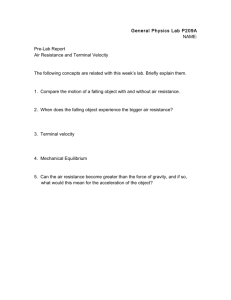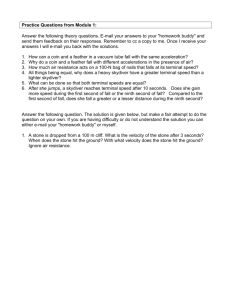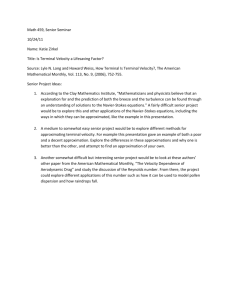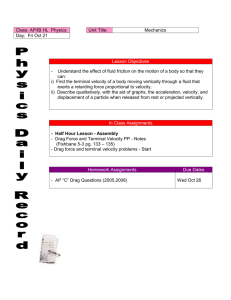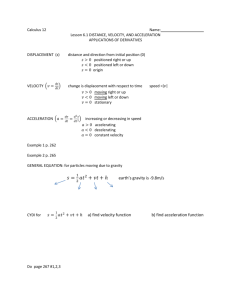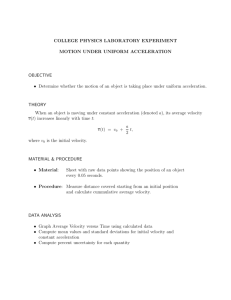Terminal Velocity (Hand-out)
advertisement
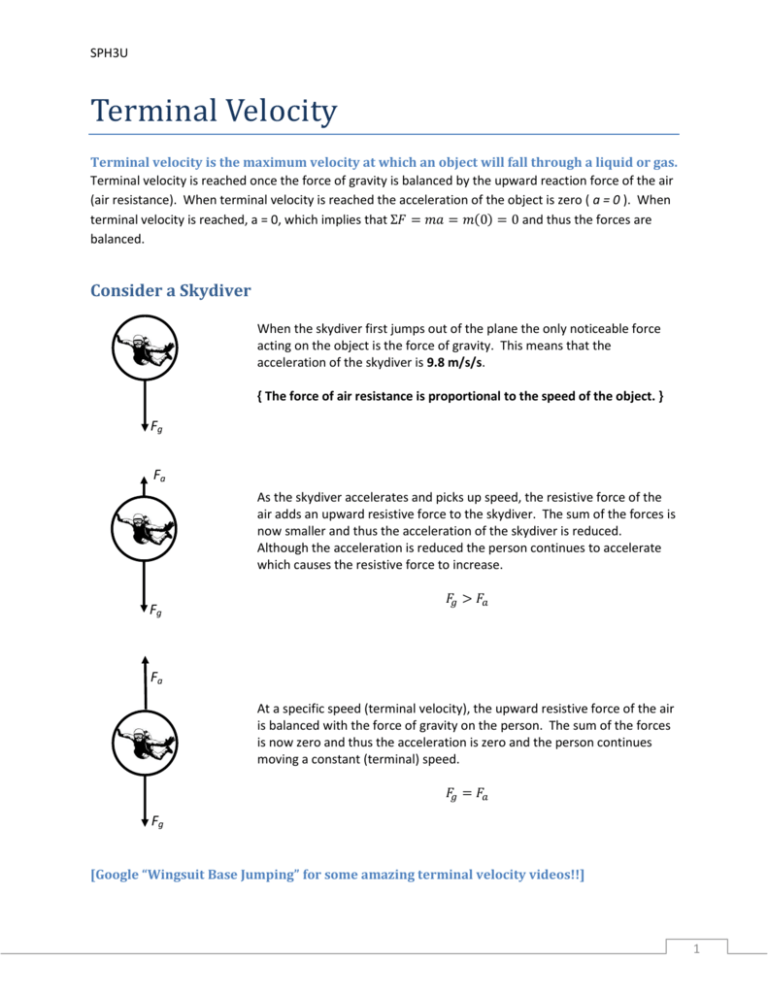
SPH3U
Terminal Velocity
Terminal velocity is the maximum velocity at which an object will fall through a liquid or gas.
Terminal velocity is reached once the force of gravity is balanced by the upward reaction force of the air
(air resistance). When terminal velocity is reached the acceleration of the object is zero ( a = 0 ). When
terminal velocity is reached, a = 0, which implies that Σ𝐹 = 𝑚𝑎 = 𝑚(0) = 0 and thus the forces are
balanced.
Consider a Skydiver
When the skydiver first jumps out of the plane the only noticeable force
acting on the object is the force of gravity. This means that the
acceleration of the skydiver is 9.8 m/s/s.
{ The force of air resistance is proportional to the speed of the object. }
Fg
Fa
As the skydiver accelerates and picks up speed, the resistive force of the
air adds an upward resistive force to the skydiver. The sum of the forces is
now smaller and thus the acceleration of the skydiver is reduced.
Although the acceleration is reduced the person continues to accelerate
which causes the resistive force to increase.
Fg
𝐹𝑔 > 𝐹𝑎
Fa
At a specific speed (terminal velocity), the upward resistive force of the air
is balanced with the force of gravity on the person. The sum of the forces
is now zero and thus the acceleration is zero and the person continues
moving a constant (terminal) speed.
𝐹𝑔 = 𝐹𝑎
Fg
[Google “Wingsuit Base Jumping” for some amazing terminal velocity videos!!]
1
SPH3U
LAW OF FALLING BODIES
Factors Affecting Terminal Velocity
AIR RESISTANCE
SURFACE AREA
DENSITY
Discussion Questions:
1.
2.
3.
4.
5.
Describe what is meant by terminal velocity and how it is achieved.
Does the mass of an object have an effect on terminal velocity when there is no air resistance?
What are the three main factors that affect an object’s terminal velocity?
Describe an object’s physical characteristics if it were to have a very large terminal velocity.
How does a skydiver control the speed at which they fall through the air? How do they speed
up and how do they slow down?
2
